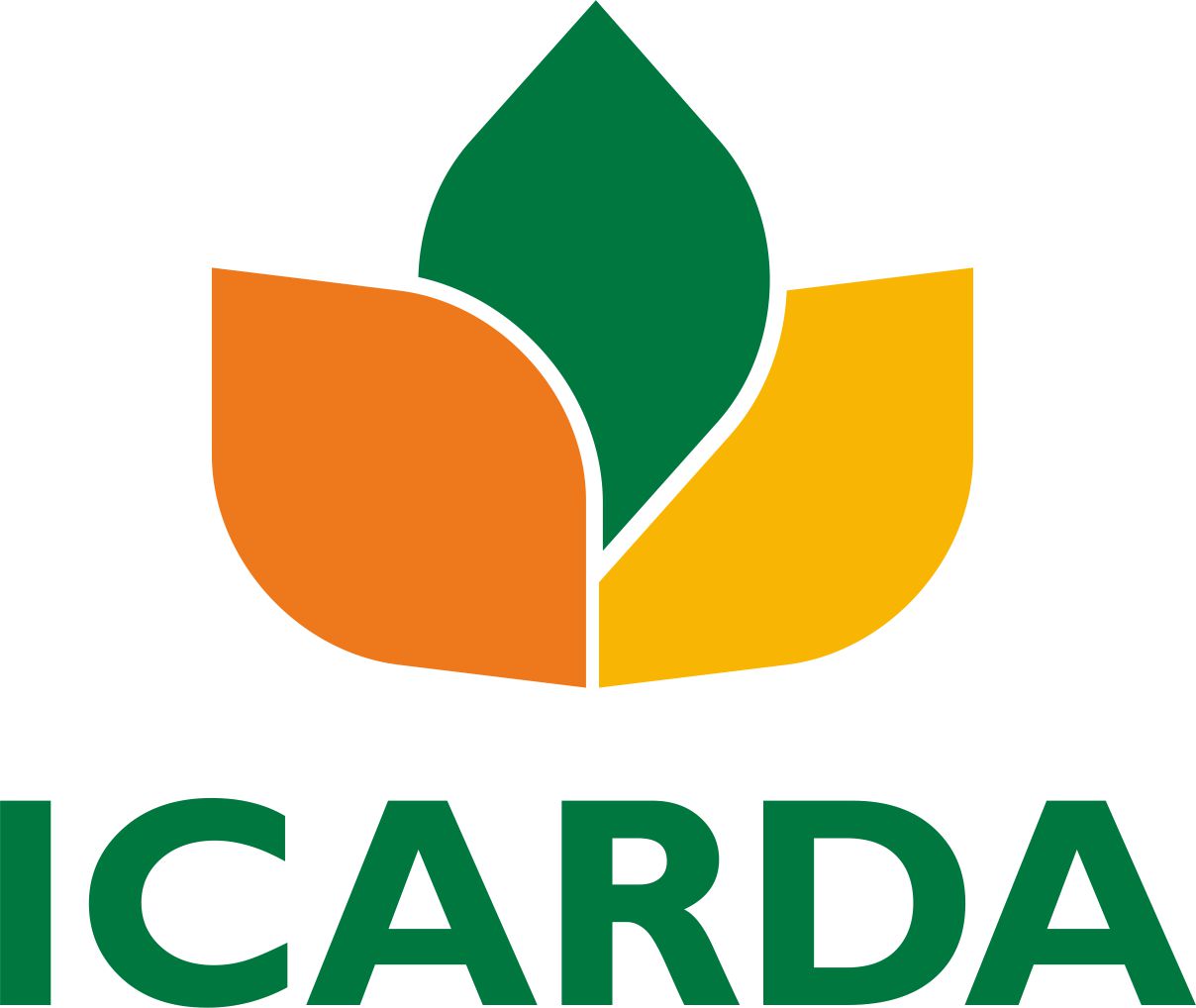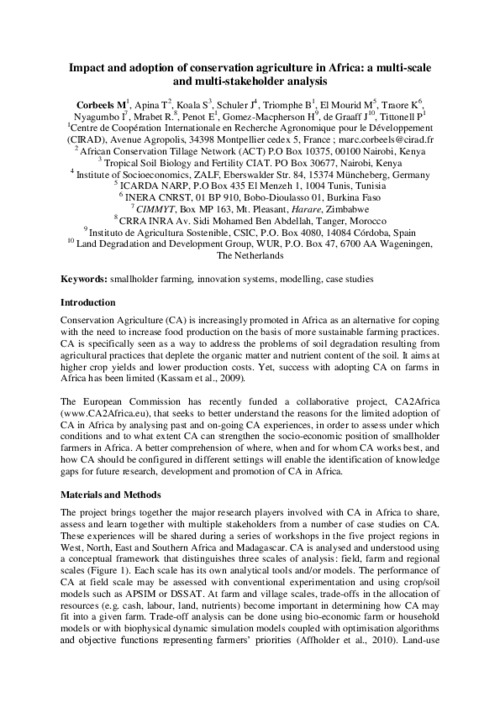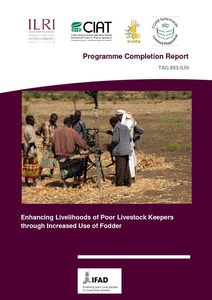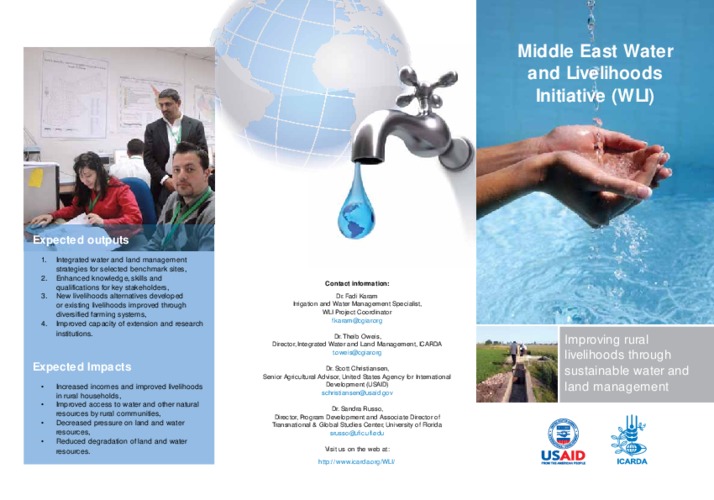Location
The International Center for Agricultural Research in the Dry Areas (ICARDA) was established in 1977. It is one of 15 such centers supported by the CGIAR. ICARDA’s founding mandate to promote agricultural development in the dry areas of developing countries remains highly relevant today.
ICARDA works with a tight focus on the problem-solving needs of resource-poor farmers, achieving this through the in-field delivery of its research outputs. Although global food production has increased by 20 per cent in the past decade, food insecurity and poverty remain widespread, while the natural resource base continues to decline.
International research centers such as ICARDA, which have helped drive previous improvements, continue to deliver new technologies to support sustainable growth in agriculture, and crucially, to work with a wide range of partners to accelerate the dissemination of these technologies.
ICARDA’s biggest strength is its staff – 600 highly skilled men and women from 32 countries. Our research and training activities cover crop improvement, water and land management, integrated crop-livestock-rangeland management, and climate change adaptation.
Other interventions include:
- Water harvesting - supplemental irrigation and water-saving irrigation techniques
- Conservation agriculture methods to reduce production costs and improve sustainability
- Diversification of production systems to high-value crops – horticulture, herbal and medicinal plants
- Integrated crop/rangeland/livestock production systems including non-traditional sources of livestock feed
- Empowerment of rural women – support and training for value-added products.
The ICARDA genebank holds over 135,000 accessions from over 110 countries: traditional varieties, improved germplasm, and a unique set of wild crop relatives. These include wheat, barley, oats and other cereals; food legumes such as faba bean, chickpea, lentil and field pea; forage crops, rangeland plants, and wild relatives of each of these species.
ICARDA’s research portfolio is part of a long-term strategic plan covering 2007 to 2016, focused on improving productivity, incomes and livelihoods among resource-poor households.
The strategy combines continuity with change – addressing current problems while expanding the focus to emerging challenges such as climate change and desertification.
We work closely with national agricultural research systems and government ministries. Over the years the Center has built a network of strong partnerships with national, regional and international institutions, universities, non-governmental organizations and ministries in the developing world and in industrialized countries with advanced research institutes.
THE ‘DRY AREAS’
Research and training activities cover the non-tropical dry areas globally, using West Asia, North Africa, Central Asia and the Caucasus as research platforms to develop, test, and scale-out new innovations and policy options.
Dry areas cover 41 per cent of the world’s land area and are home to one-third of the global population. About 16 per cent of this population lives in chronic poverty, particularly in marginal rainfed areas. The dry areas are challenged by rapid population growth, frequent droughts, high climatic variability, land degradation and desertification, and widespread poverty. The complex of relationships between these challenges has created a "Poverty Trap."
Members:
Resources
Displaying 371 - 375 of 431Performance and Adaptation of the Vallerani Mechanized Water Harvesting System in Degraded Badia Rangelands
Rainwater harvesting in micro-catchments such as contour ridges and semicircular bunds is an option for utilizing the limited rainfall, improving productivity and combating land degradation in dry rangeland areas (Badia). However, implementation of this practice using manual labor or traditional machinery is slow, tedious and costly, and often impractical on a large scale. These limitations can be overcome using the ‘Vallerani’ plow for quickly constructing continuous and intermittent ridges.
Impact and adoption of conservation agriculture in Africa: a multi-scale and multi-stakeholder analysis
Conservation Agriculture (CA) is increasingly promoted in Africa as an alternative for coping with the need to increase food production on the basis of more sustainable farming practices. CA is specifically seen as a way to address the problems of soil degradation resulting from agricultural practices that deplete the organic matter and nutrient content of the soil. It aims at higher crop yields and lower production costs. Yet, success with adopting CA on farms in Africa has been limited (Kassam et al., 2009).
Enhancing Livelihoods of Poor Livestock Keepers through Increased Use of Fodder: Programme completion report
A report submitted to IFAD on the completion of the Fodder Adoption Project (FAP), (TAG 853-ILRI) programme.
Middle East Water and Livelihoods Initiative (WLI)
This will ensure more sustainable ecosystems and improved rural livelihoods. Emphasis is given to building on local knowledge by using existing data, social capital, research linkages, partnerships and proven methodologies and technologies in the region thereby ensuring the sustainability of the impacts achieved. The Initiative also draws from a wide pool of multi-disciplinary expertise from within and outside the region and targets the three major agro-ecosystems in the region – rainfed, irrigated and rangeland.
CGIAR Research Program on Dryland Systems
CRP 1.1 was presented at the 4th Fund Council Meeting in April 2011. CRP1.1 targets the poor and highly vulnerable populations of the dry areas. It aims to develop technology, policy and institutional innovations to improve livelihoods, using an integrated systems approach. The program focuses on four strategic research themes (SRTs ) which cut across five focus regions. This CRP was approved with conditions at the meeting and subsequently received unconditional approval of inception phase & conditional approval of overall program & budget on Nov. 9, 2011.







